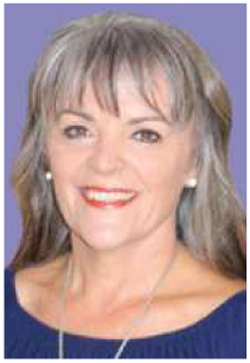August 2019

| Louise Kunz, Pula Imvula contributor. Send an email to louise@infoworks.biz |  |
When Grain SA introduced the mentorship programme their goal was to change the lives of smallholder farmers by improving their agricultural practices. Through the years it has become clear that the programme is much more than that – it has become a process of reinventing community and showing that everyone has an important role to play.
British author Marc Freedman explains mentoring best: ‘Mentoring brings us together – across generations, class and race – in a manner that forces us to acknowledge our interdependence and to appreciate that we are caught in an inescapable network of support.’
MORE THAN GUIDANCE
Jacques Roux offered his services as mentor in 2016 while he was a crop farmer in the Bethlehem region. He has since moved to the Bloemfontein region and although he is focusing more on livestock now, he still plants maize under irrigation.
He became increasingly aware of the great need that existed amongst fellow farmers who had land available but were lacking in knowledge concerning correct agricultural practices. ‘I started enquiring about where I could offer my assistance and then got involved in the mentorship programme through Johan Kriel, development co-ordinator at Grain SA.’
Although he knew that his knowledge about crop production would help the farmers become more skilled, he never anticipated the impact the mentees would have on him. ‘It was a real eye opener to see the challenges they face. These are passionate farmers impeded by financing, mechanisation and several other factors – yet, they keep going, determined to succeed.’
Since getting involved in the programme he has become aware of how important teamwork is. ‘Mentorship is about setting an example and providing guidance, but in the process, you realise that you can learn a thing or two from the mentees.’
To Jacques the mentorship programme has truly become a way of life. ‘I wake up in the morning and immediately think about the programme and what has to be done that day. I just wish I could do more to help additional farmers. It breaks my heart to have to tell a farmer that he cannot be part of the programme as funding is limited.’
The programme has even influenced his dream for the South African agricultural sector. He would love to see producers supporting the vision of a united agricultural sector. ‘No matter what the size of their farm, producers should stand together, support each other and share advice.’ It is after all towards the same goal of ensuring food security. ‘We cannot do much about the land issue, but there are things that we can change. As commercial producers we should support the smaller farmers by sharing advice and giving guidance. We all started as unsure beginner farmers at one stage.’
A LEARNING CURVE
Jacques is in the Kestell/Harrismith region where he currently mentors five farmers individually using the programme material as guideline. At the onset of the programme, it is vital to rectify the soil status as the lands have mostly been unused for many years which has left the soil depleted of nutrients.
The business plan and available funds determine what can be planted. Although more hectares were planted in the previous two seasons, this season they could all plant only 50 ha of sugar beans. ‘In planting season, I am on their farms constantly to ensure that soil preparation and the planting itself is done according to correct agricultural practices. When it is time for crop spraying I employ a system for visitations to ensure that I can supervise.’ Jacques says with the aftercare of sugar beans being so important, he makes sure that he visits the farmers regularly to check for damage and to ensure a healthy crop.
This mentor is very happy with the yield being achieved in his area. ‘Last season the farmers harvested 4,5 t/ha to 6 t/ha which is in line with the area average – this really shows me that the mentees are on a learning curve and that the programme is working.’
CREATING GOOD MEMORIES
With father and son team, Stoffel and Hudson Ndladla, who qualified for the Farmer of the Year competition this year, Jacques is smiling broadly. ‘I have never had a farmer who has qualified for the competition, so to have a mentee, Elias Mtwetwe, who is also joining the 250 Ton Club as a competition nominee, is wonderful,’ he shares excitedly.
Jacques would love to see that the mentorship process is done over a period of five years. ‘One cannot really learn enough in a year or two as the next year may be the one with a new challenge or drought where you have to know about planting an alternative crop. A five-year period would also show them how to diversify.’
It is said that no man is capable of self-improvement if he sees no other model but himself, so every mentor should also have a mentor. To Jacques it is his dad and late brother, but he also adds his mentee, Elias, to the list. This 60-year old man has shown him exactly what ubuntu means. ‘He treats everyone – from his workers to authority figures – with such respect that it puts me to shame. He also often phones me just to check in and to make sure that I am well.’
Both Elias and Jacques prove that what the American entrepreneur, Vivek Wadhwa, says about mentorship is true: ‘What you want in a mentor is someone who truly cares for you and who will look after your interests and not just their own. When you do come across the right person to mentor you, start by showing them that the time they spend with you is worthwhile.’
Publication: August 2019
Section: Pula/Imvula